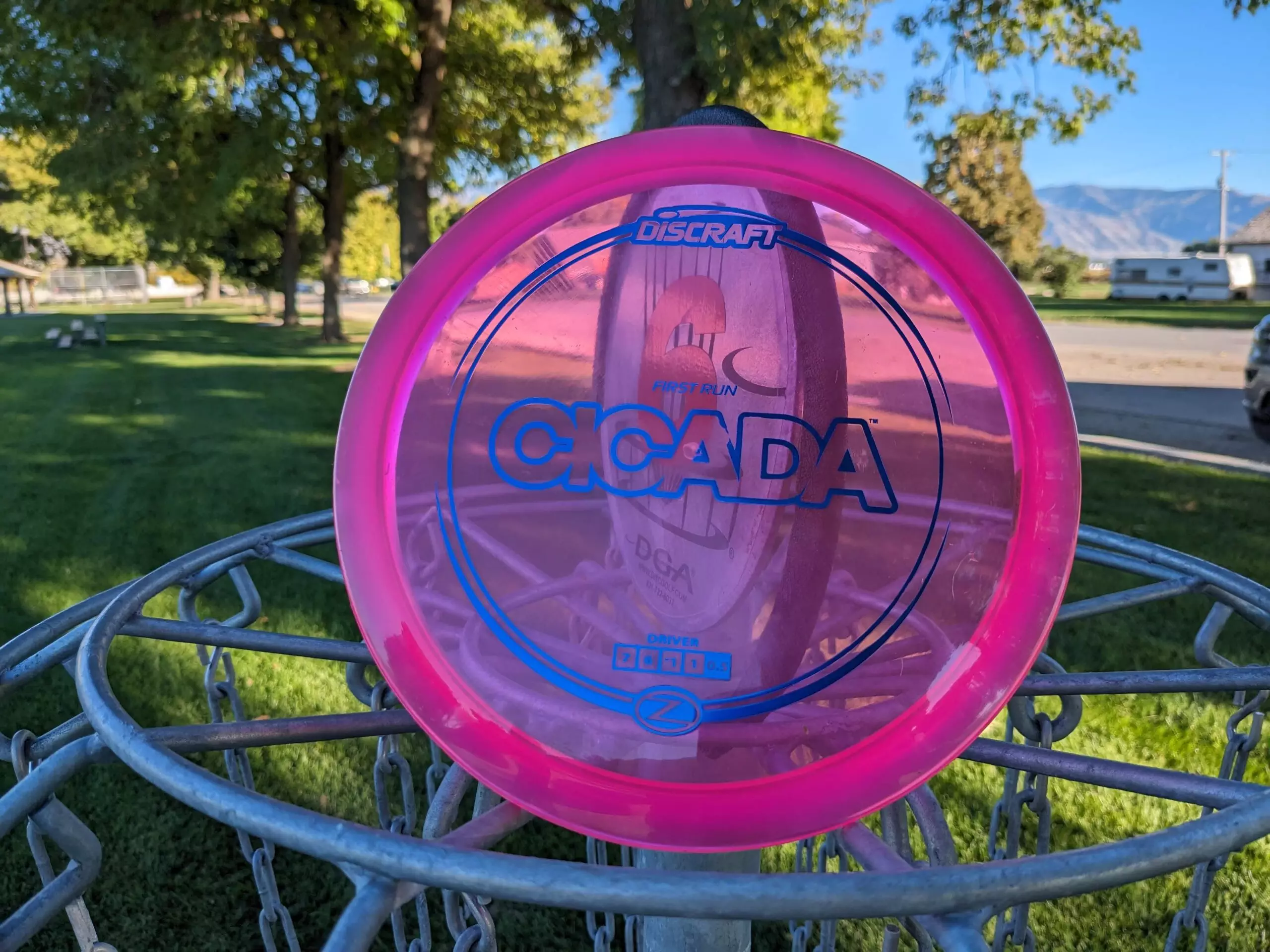
The Cicada is a great fairway driver for those looking for a neutral straight flyer. It has a fairly flat top and just begs to be thrown forehand. Compared with most similar fairway drivers, the Cicada has a slightly larger diameter. The result is a bit more glide and a little less snap out of the hand. The smaller winglets also help it to avoid flipping over on hard hyzers or anhyzers.
Assuming you have a reasonably powerful arm, the Cicada will hold any line you put it on. Power hyzers will stay power hyzers, anhyzers will hold their angle, and turnovers will flip but not roll. It’s not the fastest fairway driver out there, but its speed is more than sufficient for most players.
The glide on the Cicada is really impressive. Even when thrown with moderate power, it will glide for a long time before starting to fade. This makes it a great choice for distance shots, as it will keep carrying even when other fairway drivers would start to fade. When thrown with max power, the Cicada can really get up and fly, making it one of the longest-flying fairway drivers available.
The only real downside to the Cicada is that it doesn’t have a ton of versatility. It’s not the most OS fairway driver, so if you’re looking for a disc that can handle a lot of different lines, you might want to look elsewhere. The current plastic is Discraft Z-Line which is harder than I prefer. Some players like a hard plastic but I think it makes the discs less predictable and harder to learn on. I prefer ESP in the Discraft Line, and think I will enjoy the Cicada more when it’s available in that plastic blend.
There are a lot of different schools of thought when it comes to what kind of plastic to use for your discs. Some people prefer a hard plastic, while others (like myself) prefer a softer plastic. There are pros and cons to both types of plastic, and it ultimately comes down to personal preference.
Hard plastic discs are less likely to break and can take more abuse, but they usually require moer power and slip more, especially in cold and wet conditions. Softer plastic discs are more predictable and easier to control, but they are more susceptible to breakage and wear and tear and are more likely to become understable qucily.
Ultimately, it comes down to what you want out of your disc. If you’re looking for a disc that can handle a lot of different lines, you might want to look at a harder plastic. But if you’re looking for a disc that is easier to control and more predictable, you might want to look at a softer plastic.
If you’re looking for a straight-flying distance disc with more speed than the Buzzz, the Cicada is hard to beat.
Great Job Discraft. Another fantastic disc.